Georgia State Law

















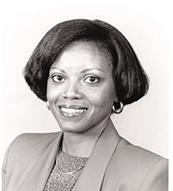









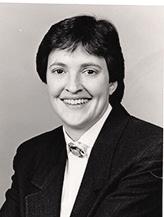


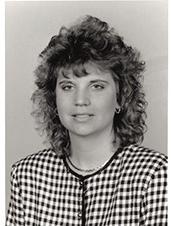



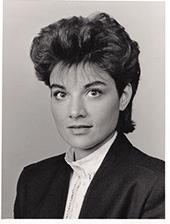
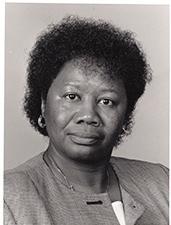



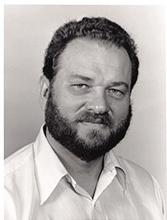



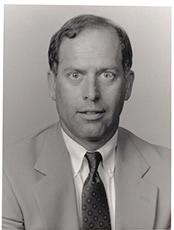





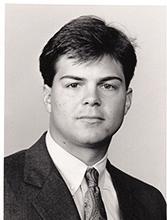




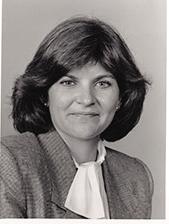

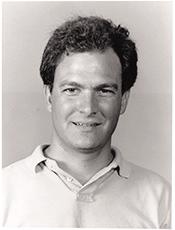










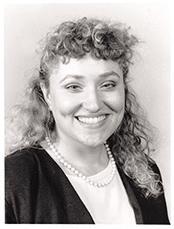
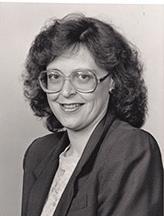




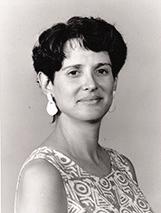



























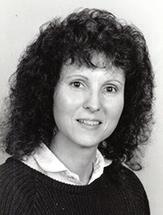


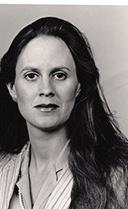

years of educating legal professionals





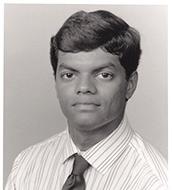
















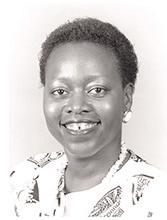
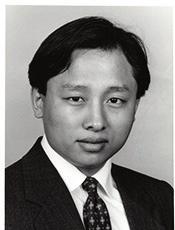








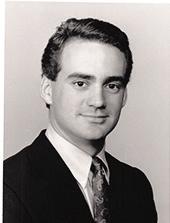
















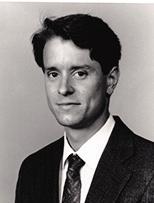


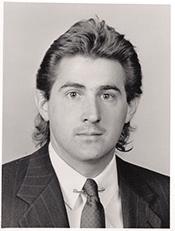










FALL 2022
First look | Orientation 2022
Tayleece Paul (J.D. ’23), left, and Bianca Theodore (J.D. ’23), right, are all smiles during the College of Law Fall 2022 Orientation.



2 GEORGIA STATE LAW fall 2022
STATE LAW NEWS 5 Celebrating 40 years From its humble beginnings, Georgia State Law has become a regional powerhouse. 10 Diversity and teaching excellence This academic year, four assistant professors of law and one visiting assistant
college. 12 And justice for all The Center for Access to Justice works to ensure that everyone receives an equally fair shot in the court of law. CURRENT EVENTS 18 Dignity amid supreme disrespect by Tanya Washington Hicks 20 Dobbs decision also impacts privacy by Jeffrey L. Vagle 22 Heed Georgia Constitution on abortion by Anthony Michael Kreis 5
GEORGIA
professor joined the
STUDENT STORIES 24 Real-life lesson Steph Iasiello (J.D. ’23) 25 Representation and visibility Tamia Robinson (J.D. ’24) ALUMNI PROFILE 28 The making of a trial maven Linda Dunikoski (J.D. ’93) IN THEIR WORDS 30 The College of Law turns 40 Pamela Peynado (J.D. ’14) IN EVERY ISSUE 4 From the Dean 26 Faculty news 31 Class actions 32 Last look
Georgia State Law
Dean LaVonda N. Reed
Editor Jaya Franklin Director of Communications Art director/designer Winnie Hulme
Contributors
Stacey Evans (B.A. ’02)
Tanya Washington Hicks Anthony Michael Kreis Maya Kroth
Alaina Vacante (J.D. ’24) Jeffrey L. Vagle Joy Woodson
Photographers
Meg Buscema
Alea de Bengson
Jenni Girtman
Caroline Joe
Shabreon Richards
Jennifer Stalcup
Lorikay Stone
Board of Visitors
Simon H. Bloom Bloom, Parham llp
Janine A. Bowen (J.D. ’98) Baker Hostetler
Carrie L. Christie (J.D. ’89) Rutherford & Christie llp

Tye G. Darland Georgia-Pacific llc
Richard H. Deane Jr. Jones Day
Scott Frank (J.D./M.B.A. ’94) AT&T Intellectual Property Inc.
Ronald J. Freeman Sr. (J.D. ’85) Johnson & Freeman llc
William E. Grob (J.D. ’00) Ogletree Deakins Nash Smoak & Stewart llc
Edward J. Hardin Rogers & Hardin
Phillip E. Holladay Jr. King & Spalding (retired)
Randall L. Hughes Bryan Cave llp (retired)
Dawn M. Jones (J.D. ’00) The Firm of Dawn M. Jones llc
Joyce G. Lewis, (J.D. ’99) Krevolin & Horst llc
Aasia Mustakeem (J.D. ’87) Atlanta Beltline, Inc.

The Honorable David E. Nahmias Supreme Court of Georgia (retired)

Steven B. Najjar, Esq. (J.D. ’92) Hannover Life Reassurance Company of America
Ernesto R. Perez (J.D. ’92) Alvarez & Marsal Taxand, llc
Timothy B. Phillips American Cancer Society Inc.
Lisa Schreter (J.D. ’91) Littler Mendelson, p.c.
Craig A. Spencer (J.D. ’87) The Arden Group
Frank B. Strickland, Esq. Taylor English Duma llp Elizabeth V. Tanis King & Spalding (retired)
The Honorable Thomas W. Thrash Jr. U.S. District Court, NDGA
Georgia State Law Magazine is published by Georgia State University College of Law for alumni, students, faculty, staff and supporters.
Send address changes and alumni news to: Georgia State University College of Law, Office of Development and Alumni Relations, P.O. Box 4037, Atlanta, GA 30302-4037
Email: lawdevelopment@gsu.edu
25 12
@GeorgiaStateLaw Twitter @GeorgiaStateLaw Instagram @GeorgiaStateLaw
Georgia
5 FALL 2022 3
Facebook
LinkedIn
State University College of Law
Dear Alumni, Friends, Faculty, Staff and Students,
On September 13, 2022, the College of Law celebrated our 40th anniversary! This fall 2022 edition of the Georgia State Law magazine looks back over our 40 years of educating and inspiring legal professionals.
It was September 13, 1982, when the College of Law opened its doors and welcomed 200 juris doctor candidates, thanks to the vision and efforts of our Founding Dean Ben F. Johnson Jr. and many others who answered the call to establish a part-time and evening accredited law school in Atlanta, GA.
Those students and faculty took a chance to be a part of something new, not knowing how things would turn out. As the years progressed, we grew and began to find our footing. Through hard work, grit and ambition, the College of Law not only survived, but thrived, becoming a regionally and nationally recognized law school with international partnerships and an accomplished community of students, scholars and leaders.
We grew and moved up in the rankings, gaining national recognition as one of the “best value” law schools, and we moved to a beautiful, state-of-the-art academic building. We became home to one of the top health law programs, and in 2020 and 2021, we garnered state-wide recognition for having the best overall bar passage rates in Georgia.
Currently, the College is home to six centers, six clinics and initiatives, 12 academic degree programs (including J.D. and Master of Laws), more than 70 faculty members, and as of fall 2022, 692 enrolled students. These students enter law school with the strongest academic credentials in the history of the College and with diverse professional experiences. They also constitute one of our most diverse classes. Our students volunteer thousands of hours of pro bono service annually and leave our campus set on making a positive impact on the profession and the world.
Our faculty are engaged in some of the most cutting-edge and important topics of our generation. They are frequent contributors to the local, national and international conversation on these subjects and publish widely in prestigious journals and university presses.
And that’s not all, our alumni community is more than 6,500 strong! Georgia State University College of Law remains a close-knit, resourceful community of which I am proud to be a part.
In this edition, you will enjoy facts and images of Georgia State Law through the years, which document the College’s rich history. This edition features an article about Linda Dunikoski (J.D. ’94), lead prosecutor for the Ahmaud Arbery trial, and you will find a few op-eds from Georgia State Law faculty members on trending news topics. You also will learn about the leadership efforts of Tamia Robinson (J.D. ’24) and Steph Iasiello (J.D. ’23) to advocate for change in the areas of disability rights and wrongful conviction. Look out for more events to commemorate our 40th anniversary throughout this year.
Best regards,
 LaVonda N. Reed Dean and Professor of Law
LaVonda N. Reed Dean and Professor of Law

4 GEORGIA STATE LAW
the Dean
From
Georgia State Law celebrates



























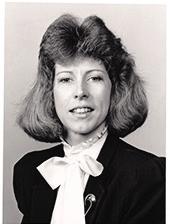




















































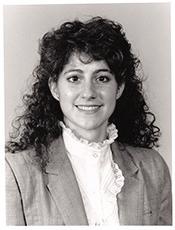



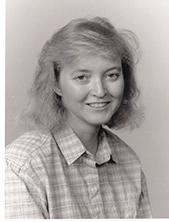



























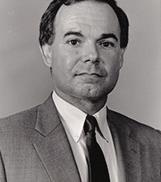





























 by Stacey Evans (B.A. ’02)
by Stacey Evans (B.A. ’02)




years






















FALL 2022 5
The first full class of 85 students was hooded in 1985
Seven students were the first to graduate in December 1984.

1982
In 1982, Georgia State Law welcomed 200 Juris Doctor candidates.


The College received full accreditation from the American Bar Association in 1990
By 1992, the College had grown to 617 students with 35 faculty members.
6 GEORGIA STATE LAW
From its humble beginnings, Georgia State Law has become a regional powerhouse committed to accessibility and affordability for its students.
The 2000s ushered in plenty of real-word discussions and more opportunities to build practical legal skills.
In 2015 the college relocated to a new $82.5 million stateof-the-art building.

In 2022, Georgia State Law has a student body of 692 and an alumni community more than 6,000 strong.

FALL 2022 7
2022
ROUGHLY 40 YEARS AGO,
Sandra Day O’Connor made history as the first woman nominated to the U.S. Supreme Court. Time magazine’s “Man of the Year” title was given for the first time to a non-human, the computer. Mobile phones were introduced to the U.S. market, MTV was launched, the first cases of HIV/AIDS were being reported, and DNA testing emerged.
The World Wide Web hadn’t yet made its debut.
The early 1980s also marked the beginning of a new era in Atlanta’s legal landscape. Ronald J. Freeman Sr. (J.D. ’85) remembers sitting in on a hearing in 1981 at the State Capitol regarding the support for a new law school in Georgia.
“I was very impressed with the passion and persistence of Dean Ben F. Johnson Jr. (Georgia State University College of Law’s founding dean),” Freeman said. “I believed this would be an excellent environment for me and my legal career.”

Many had been advocating for an affordable, high quality law school that offered evening classes and part-time enrollment, which would open up a path for students who may have not been able to pursue a law degree otherwise therefore broadening and diversifying the field.
In 1982, Georgia State Law welcomed 200 Juris Doctor candidates to the new school’s home, on the first floor of Georgia State’s Urban Life building just a short walk to the Capitol, courts, and numerous law firms.
“We were very excited to be trailblazers,” said Freeman, managing member at Johnson & Freeman, LLC. “I was very close to most of my classmates, and we stay connected.”
The college’s six professors led thoughtful discussions about prominent topics of the time.
“We spoke frequently about redistricting in Georgia,” Freeman said. “We also discussed the inequality of women and minorities as it related to access to education, quality homeownership, and wealth.”
Seven students were the first to graduate from the law school in December 1984, and the first full class of 85 students was hooded in 1985.
For students like Sylvia Caley (MBA ’86, J.D. ’89), who chose law as a second career, Georgia State Law hit the mark. She enrolled the same year the late Marjorie F. Knowles became dean of the College of Law. Knowles was the 17th woman in U.S. history to serve as dean of a law school.
“That was a big deal,” Caley said. “It was a very positive experience to have a woman of her gravitas leading the law school forward.”
Just six years after opening its doors, Georgia State Law won its first National Moot Court Competition in 1988.
“We were very proud,” Caley said. “It was one of the early events that helped to build the Georgia State Law brand.”
The gritty 1990s
Under the leadership of Knowles, the College kicked off the ’90s by receiving full accreditation from the American Bar Association in 1990.
The decade was one of immense transformation. The Berlin Wall and Soviet Union had fallen, and the Internet and mobile phones were changing how we communicate. It was the era of the Gulf War, Rodney King trial, four nominations to the Supreme Court, Dolly the cloned sheep, Matthew Shepard, Bill Clinton’s impeachment, the Oklahoma City bombing, and the school shooting in Columbine. 1996 was especially significant for Atlanta as the city hosted the summer Olympics.
Looking at current events through a legal lens especially in a class with nontraditional students—was eyeopening, said Ernesto Perez (J.D. ’92), managing director and global practice leader at Alvarez & Marsal Taxand, LLC.

“I was in class with doctors, accountants, engineers they added an interesting dimension,” he said. “My fellow students and professors were enormously influential in my way of thinking and changed my thought process and my understanding of a lot of things in the world.”
The students were determined to show the law school could hold its own, even with more established ones in the region.
“We wanted to prove that we belonged,” Perez said. “[The school] was really gritty, but one thing that has been a huge factor for the school’s development was that the city and law firms took a vested interest in seeing the law school thrive and grow, and so students had great internship and job opportunities.”
By 1992, the College of Law had grown to 617 students with 35 faculty members, and admission applications exceeded 2,200 for 180 open slots.
As the college surged in stature, so did its academic offerings. Caley returned to the school as a supervising attorney and adjunct faculty member in 1990 and became one of the founders of the Health Law Partnership (HeLP), and later the HeLP Clinic.

Since then, the school’s health law program has grown into a nationally recognized powerhouse, now consistently listed among the top in the U.S. News & World Report rankings.
Experiential learning
The health law courses were a big draw for Jerri Nims Rooker (J.D. ’03), chief international operations officer at Haggai
8 GEORGIA STATE LAW
Sylvia Caley
Ronald J. Freeman Sr.
Ernesto Perez
International. She enjoyed the “a-ha!” moments that would occur when a real-world scenario or concept was examined during class. “This occurred regularly, during discussions of everything from health insurance regulation to the ethics of embryonic research,” she said.
The new millennium ushered in plenty of real-word discussions. Students from the classes of 2000s experienced the Sept. 11 attacks and Iraq wars, Hurricane Katrina, stock market crashes and a recession, along with the election of the nation’s first Black president.
Students also had more opportunities to build practical legal skills.
“The law school was astute in recognizing the emerging data on the benefit of law students having opportunities to learn through experience, and intentionally included experiential methods in existing courses and created new clinics and experience-based courses to better prepare students to enter ‘real-world’ legal practice,” said Rooker, who was the associate director of Georgia State Law’s Center for Law, Health & Society from 2004 to 2011.
‘Supercharged’
As Georgia State Law flourished in the new century, it needed a bigger home that also could showcase all it had to offer.
Under the leadership of Dean Steven Kaminshine, in 2015 the college relocated to a new $82.5 million state-of-the-art building at 85 Park Place.
“On that day, our external appearance more accurately reflected our internal excellence,” Rooker said. “We were no longer the best kept secret in legal education—we were front page news!”
The move “supercharged everything,” Caley said. “I think we became an increasingly important member of the legal community with that move. It added a special sheen to the law school.”
The building’s new technology along with upgraded facilities paved the way for new opportunities. Pierce Hand (J.D. ’16), who attended classes in both Urban Life and Park Place, said one special moment was when the Supreme Court of Georgia held oral arguments in the school’s new Ceremonial Courtroom.
Courageous, committed, curious But even in a “glamourous” new building, the heart of Georgia State Law remained the same—a community of faculty, students and staff who are courageous, committed and curious.
Hand, a senior assistant district attorney in Fulton County, said the school was an “amazing place” to have conversations about topics being litigated at the time, such as Obergefell v. Hodges.
“You could really dive into issues that are impactful for people and have thoughtful conversations with other students in a really civil manner,” he said.
With phenomenal professors and staff at the helm, Hand said Georgia State Law has strengthened the Atlanta legal community by cultivating students who are practice-ready when they graduate.
“I felt very well prepared as a writer, as a legal researcher, and as a practitioner when I graduated,” Hand said. “Law firms and nonprofits love Georgia State students because they know they are hard-working and ready for practice.”

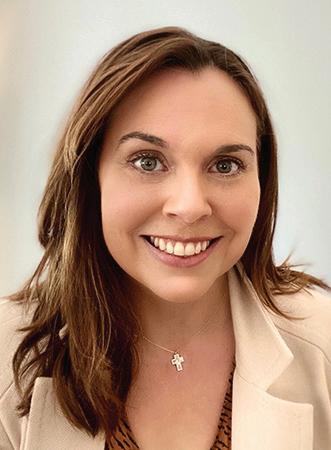
The future of legal education
With a current student body of 692 and an alumni community more than 6,000 strong, Georgia State Law has made a significant impact in its 40 years as an innovative and forwardthinking institution committed to equity and inclusion.
“From a criminal defendant receiving a fair trial, to a piece of legislation protecting a disadvantaged population, to a newly formed company leveraging its intellectual property, to a ministry expanding its international footprint to provide lifesaving resources, to a patient receiving coverage for a needed treatment, to thousands of more examples, Georgia State Law is having a life-changing and life-improving impact far beyond its geographical namesake,” said Rooker.
Georgia State Law now offers 12 degree programs and a variety of experiential learning opportunities through 18 research centers and clinics and has more than 70 full-time faculty members. It has been recognized as one of the “best value” law schools in the nation, and bar passage rates have remained high.
So, what’s in store for the future?
Dean LaVonda Reed, who became the seventh dean to lead Georgia State Law in July 2021, will continue to build its legacy.

“It is indeed an honor to carry on the legacy established by the law school’s six former deans and many faculty members whose vision and dedication created a school that is affordable and continues to provide unique access to the legal profession and access to legal representation,” Reed said. “I am eager to build upon this legacy with an incredible community of scholars, students, staff, alumni and friends of the College of Law who support our mission and programs with great generosity. I know Georgia State Law will continue to make its mark on legal education and the profession in the next 40 years and beyond.”
Read the full story at law.gsu.edu/.
FALL 2022 9
Jerri Nims Rooker
Pierce Hand
LaVonda Reed
NEW FACULTY HIRES

Diversity and teaching excellence
by Jaya Franklin
This academic year, four assistant professors of law and one visiting assistant professor joined the college from all over the nation.
10 GEORGIA STATE LAW
Above, left to right: Julian Hill, Allison Whelan, Rose Rameau, Susan Provenzano, Anjali Deshmukh
“OUR NEW COLLEAGUES bring a wide range of knowledge and expertise to complement and further diversify our curricular offerings and academic reach,” said LaVonda Reed, dean of the college and professor of law.
I am confident they will enrich the academic experience of our students and they will advance the interdisciplinary intellectual excellence, which is central to the work of our faculty,” Reed added.
Center for Law, Health & Society
Allison “Ally” Whelan and Dr. Anjali Deshmukh work closely with the Center for Law, Health & Society. Whelan and Deshmukh both have a strong interest in the role of law on improving the health of communities.
Whelan, a former George Sharswood fellow at the University of Pennsylvania Carey Law School, said she looks forward to learning from Georgia State Law’s inspiring and vibrant community.
“As an interdisciplinary scholar whose work draws upon law, bioethics, and medicine to study how the administrative state engages and influences health care, I am excited to join a university that values and supports interdisciplinary work. I know I have found this at the College of Law, one of the nation’s top-ranked health law programs,” Whelan said. She has studied bioethics and worked as an attorney practicing food and drug law. Today, her work explores important legal and regulatory interventions for some of the most urgent issues faced by the Food and Drug Administration, other health care agencies and institutions and society at large.
Dr. Deshmukh is a board-certified pediatrician, an experienced patent litigator, and served as a clinical research fellow for the program on Regulation, Therapeutics and Law (PORTAL) at Harvard Medical School and Brigham and Women’s Hospital. She said her background in medicine has provided her with additional skills, insights, and inspiration that informs and drives her legal work.
“My scholarship starts and ends at the patient’s bedside I strive to understand the impact of laws and policies on patients and real-world outcomes,” Dr. Deshmukh explained.
Erin Fuse Brown, director of the Center for Law, Health & Society and co-chair of the faculty recruitment committee said Georgia State Law already has a fantastic health law program, and the addition of Professor Whelan and Dr. Deshmukh elevates the Center for Law, Health & Society to the next level.
“They contribute deep expertise in FDA law, reproductive rights, medicine, and intellectual property law to our renowned health law program.”
Translating law into practice
Julian Hill was a bilingual graduate clinical teaching fellow at Georgetown University Law Center’s Social Enterprise and Nonprofit Clinic. Hill’s teaching and research areas will focus on issues related to law and social justice at Georgia State Law.
Hill advocates for Spanish-speaking clients and shares the importance of client accessibility with students.
“As a clinician, the main way Spanish has come up has been in the context of serving Spanish-speaking clients. In the seminar, this has meant discussing best practices with students in regard to using interpretation and translation services. In the client context, this has meant being attentive to interpretation to ensure that there are no issues and where support is needed, providing certain translation support for my students.”
Hill created Yo Hablo LLC, a community of learners, teachers, and creatives who merge hip-hop music and curriculum to empower English speakers to learn Spanish. Hill is only the second tenure-track Black man to join our faculty in the 40 year history of the law school.
Susan Provenzano, a former William M. Trumbull professor of practice at Northwestern Pritzker School of Law, teaches civil procedure at Georgia State Law.
Provenzano’s favorite part about being a law professor is the classroom interaction. “Law students bring so much energy, curiosity, and depth to their classroom experiences, and that really motivates me,” she said.
International law
Rose Rameau is a managing partner for Rameau International Law, a boutique law firm specializing in investor-state disputes and white-collar defense. Rameau is now a visiting assistant professor of law and teaches courses in international law, alternative dispute resolution, and introduction to arbitration.
“I am truly eager to share cross-cultural law practices that aren’t captured in textbooks,” said Rameau about her new venture.
In the past, she has served as a professor of law at the Université Panthéon Assas (Paris II), Université Paris-Est Créteil, and the University of Ghana.
While in Ghana, her research as a Fulbright scholar examined how class action arbitration can resolve human rights violations in the oil and gas industry. Rameau has a deep interest in the development of investment law and the management of natural resources in Africa. She was also the vice-chair of the American Bar Association Section of International Law Africa Committee and the vice-chair of the ABA Section of International Law for the International Energy and Natural Resources Committee. Rameau is currently an ABA advisor to the Uniform Law Commission Study Committee for the U.N. Convention on International Settlement Agreements Resulting from Mediation.
In 2020, she received the American Bar Association Section of International Law Mayre Rasmussen Award for the Advancement of Women in International Law.
FALL 2022 11
“We are thrilled to welcome these stellar scholars to the College of Law faculty.”
LaVonda Reed, dean of the college and professor of law
AND JUSTICE


AND JUSTICE FOR ALL
by Maya Kroth
Georgia State’s Center for Access to Justice works to ensure that everyone — including the most disenfranchised — receives an equally fair shot in the court of law. Its work has already uncovered significant disparities that left many of the state’s residents vulnerable during the pandemic.

FALL 2022 13
FIVE YEARS AGO
The way courts work in big cities is very different from how they work in smaller or rural areas. For one thing, many rural courts run entirely without lawyers — including the judge.
Kathryn Hamoudah (J.D. ’20) spent her spring break in a business suit, observing a crowded courthouse on the outskirts of Jackson, Mississippi. She and a small group of other Georgia State law students watched as a guard brought into the courtroom two African American men in orange jumpsuits, chained together at the waist.
“The deputy told them to turn around and face the wall so they couldn’t look at anybody,” Hamoudah recalls. When one of the men couldn’t hear the instruction and asked the guard to repeat it, the guard snapped, “I told you to get your nose against that wall!”
Each man was there about a minor traffic violation. Neither had been found guilty of any crime.
At first the students thought such behavior was a one-off —a bad judge, a particularly dysfunctional courtroom. But as they observed the courts that week, it kept happening, day after day: Judges comparing defendants to animals. People being tried and convicted in absentia. Public defenders nowhere in sight.
“There was no dignity,” she says. “In law school, we think about decorum, that people are treated in a certain way. And really, the people who are treated in a dignified way are people with money. It became very clear that, like most things in the legal system, it was systemic.”
Hamoudah and her classmates observed these courts as part of an Alternative Spring Break program coordinated by the Georgia State College of Law’s Center for Access to Justice. The goal: To understand how the law they were learning in the classroom was actually practiced on the ground.
“WHAT IS ‘ACCESS TO JUSTICE’?” asked a slide projected onto the screen behind Professor of Law Lauren Sudeall on day one of last fall’s Law 7006: Access to Justice: Law Reform. Speaking through a white KN95 mask, Sudeall asked students to brainstorm a definition.
“Access to justice is the … ability to remedy a legal matter in an honest and humane way,” offered one.
Another student piped up: “The ability of some person, regardless of status, to utilize legal systems and mechanisms in order to bring about a just remedy to a given legal injury.”
“Being empowered to navigate the legal system,” added a third.
Access to justice “can mean a lot of different things to different people,” Sudeall explains. As the director of the Center for Access to Justice, which she founded in 2016, she’s been facilitating discussions like these for more than five years. Sudeall’s mission is twofold: To shine a light on how people who don’t have legal assistance navigate the court system, and to expose the gap between how the law is taught and how it’s practiced.
14 GEORGIA STATE LAW
The center’s work is divided into three focus areas: research, driven primarily by Sudeall’s investigations into how courts function; education, including an award-winning pro bono program and the Alternative Spring Break; and events, chiefly the annual State of the South conference on access to justice.

Sudeall came to Georgia State with a gold-plated resume: Yale, Harvard Law, a prestigious clerkship with Supreme Court Justice John Paul Stevens. Before joining the faculty, she was a lawyer at the Southern Center for Human Rights, where she worked with individuals facing the death penalty.
“I tend not to think that people are bad, but instead that everyone has a story and that probably comes from defending people on death row,” she says. “I knew I wanted to pursue a version of academia where my research would have real-world applications and to help tell another story, particularly in this part of the country.
“I am often drawn where it feels like people are not paying enough attention,” Sudeall continues. “The political landscape is very different here, the nature of the courts is different, and the realm of what feels possible is different.”
The center is unique in its emphasis on studying the civil and criminal legal systems. The legal profession siloes the two, but defendants are often forced to interact with both at the same time, and usually without a lawyer.
“One of my goals is to shift our vantage point, to look at these things from the perspective of the people who are actually trying to navigate [the system] without representation,” she says. “The way we’ve constructed our systems doesn’t make a lot of intuitive sense. It can be overwhelming and confusing, particularly when people are dealing with losing a home, losing custody of their children or domestic violence. In a lot of those situations, particularly in southern states, the odds you’ll have a lawyer are extremely slim.”
FOR ONE OF THE FIRST PROJECTS, Sudeall and her team set out to create a map to visualize access to justice in Georgia. Produced in partnership with Georgia Institute of Technology biologist Joshua Weitz and data scientist Chad Wigington, the map showed how many lawyers and legal aid groups there are in every county, as well as other factors that can influence access to justice, such as household income, car ownership and internet access.
The map revealed that much of the state is a legal desert. Lawyers and legal non-profits are clustered in metro Atlanta, and 59 counties have fewer than 10 lawyers. Five counties have no lawyers at all. The findings led Sudeall to look closer at rural and semi-rural courts.
FALL 2022 15
In 2017, students from the A2J Alternative Spring Break program visited the home of Medgar and Myrlie Evers in Jackson, MS. The location is now listed as a national monument.
159
counties
ACCESS TO JUSTICE IN GEORGIA: BY THE NUMBERS
5
counties with zero attorneys*
156
evictions per day**
Sources: *Access to Justice Map (published 2017) **Eviction Lab (2016 stats)
17
eviction filings per 100 rental homes**
A lot of the existing research on courts focuses on cities, in part because that’s where law schools tend to be located, she notes. But the way courts work in big cities is very different from how they work in smaller or rural areas. For one thing, many rural courts run entirely without lawyers including the judge.
“You can talk to judges in some of these places, and none of them have ever been to law school,” says Daniel Pasciuti, an assistant professor of sociology at Georgia State. “[You ask] how did you get this job? And the answer is, ‘Oh, I used to be the clerk, and when the previous judge retired, I decided to become the judge.’”
In 2018, with funding from the American Bar Endowment, Sudeall and Pasciuti started investigating how suburban and rural courts in Georgia handled evictions.
“There’s a joke that there are 159 counties in Georgia, and 159 different ways of doing law,” says Pasciuti. Not to mention a multitude of systems for record-keeping, as his graduate researchers learned the hard way.
“There was no digital record system, so we’re physically going out there with portable scanners, sitting in closets at the back of the court, pulling out shoeboxes full of paper records and scanning each case individually,” he says.
Meanwhile, Sudeall and Pasciuti interviewed judges, clerks, litigants and law enforcement officers. The mixed-method approach offered a quantitative and qualitative explanation not just of how the courts functioned, but why things happened.
Just as they were wrapping up their research, the pandemic hit and with it, a whole new set of concerns. The Georgia Appleseed Center for Law & Justice asked the researchers to help compile and analyze data to understand how Georgia courts were interpreting and applying COVID-related eviction moratoria handed down by the Centers for Disease Control and Prevention (CDC) and the State Supreme Court.
“Georgia is incredibly decentralized, so nobody knew what that actually meant,” Pasciuti says. “Were all courts closed? Were courts accepting cases? Were courts still hearing cases? Nobody knew.”
The resulting three-part report, “Courts in Crisis,” revealed a patchwork of responses from around the state. In theory, tenants could seek eviction protection under the CDC moratorium, but
Sudeall and Pasciuti found that nearly two-thirds of Georgia courts didn’t even tell litigants about the declaration form. In the absence of a clear and consistent policy, it was nearly impossible for someone facing eviction to figure out how to stay on the right side of the law. As a result, many vulnerable Georgians weren’t protected at all. Sudeall has since secured another grant from the Russell Sage Foundation to support a new mixed methods study with colleagues at Georgia Tech and the University of Hawaii to determine how local courts in Georgia and Florida implemented state and federal emergency eviction prevention policies promulgated in response to COVID-19.
“People think of the law as a neutral, objective thing, without understanding how much room there is for subjectivity, how amorphous the law can be,” Sudeall says.
Sometimes access to justice can be improved simply by increasing access to legal representation: getting the word out about free legal assistance, for example. But Sudeall, in her research, has also advocated for the reverse: Using plain language, creating self-help tools and simplifying the system so lawyers aren’t so necessary in the first place.
“We should think of our responsibility as broader,” she says. “It’s not just ‘How are we going to get our one client access to their outcome?’ but ‘How we can provide everybody with that level of access?’”
SUDEALL’S OTHER HALF at the Center for Access to Justice is assistant director Darcy Meals, an Atlanta native who had been working at a law firm but was looking for a route back to the public interest work that drove her to become a lawyer in the first place.
“I always joke that if we’re a think tank, she’s the think and I’m the tank,” says Meals, who runs the center’s student-facing programs, including Alternative Spring Break.
Meals also oversees the pro-bono program, through which law students have provided more than 4,500 hours of service to about a dozen partner organizations around Atlanta. During the COVID-19 eviction chaos, 20 Georgia State students worked with Atlanta Legal Aid Society, the Georgia Legal Services Program
16 GEORGIA STATE LAW
Sudeall has advocated for using plain language, creating self-help tools and simplifying the system so lawyers aren’t so necessary in the first place.
and the Atlanta Volunteer Lawyers Foundation (AVLF) to draft demand letters to landlords, prepare informational materials on tenants’ rights and help with legal research. These efforts didn’t go unnoticed: The White House and the Department of Justice recognized Georgia State’s College of Law as one of 99 law schools that responded to the Attorney General’s Call to Action to address the twin housing/eviction crises in the U.S.
“Students are often surprised to learn that tenants in their own backyard are enduring a landlord’s illegal conduct for example, failure to repair their rental properties,” says Cole Thaler, co-director of AVLF’s Safe and Stable Homes Project.
The center’s students offer perhaps the greatest proof of its impact.
“Taking the course definitely straightened me back out and reminded me why I came here in the first place,” says Mark Pickett (J.D. ’23), a law student who graduates this spring and recently accepted a job as a staff attorney with Georgia Legal Services Program. “I learned that there are viable career paths for people who want to help.”
Robert Evans (J.D. ’23) swore he’d never go back to the small Georgia town where he grew up. But after encountering the rural access-to-justice issues raised in Sudeall and Meals’ course, he applied for and secured a judicial clerkship in rural Coweta County, which he will begin after graduating from the College of Law this spring.
In the five years since her spring break in Mississippi, alumna Kathryn Hamoudah has worked in the DeKalb County public defender’s office and plans to continue in the field.

Sudeall hopes the next five years see the Center expanding its reach beyond Georgia, with more dedicated faculty researching issues across the South. She believes it’s incumbent upon the legal profession to take responsibility for the failures of the system, since those who suffer most from those failures have the least power to effect change.
“That’s just how I’m built,” Sudeall says. “I don’t understand how you could think about it any differently.”
This article was originally published in the Georgia State University Research Magazine
FALL 2022 17
Lauren Sudeall, left, and Darcy Meals.
Current events | Associate Justice Ketanji Brown Jackson
TANYA WASHINGTON HICKS
Nomination hearings showed Black women’s dignity amid supreme disrespect
WHY ARE BLACK WOMEN expected to go high, while white men are excused for going low?
Black women experienced collective trauma last week, as we witnessed our sister in law, Judge Ketanji Brown Jackson, respond with assurance and grace to a barrage of insults and base behavior unbecoming of the Supreme Court nomination process. Judge Jackson’s extraordinarily measured response stood in stark contrast to savage attacks by several senators whose crude conduct tarnished the integrity of the proceedings. Judge Jackson should not have had to endure the disrespect on full display at her confirmation hearing, and Black women shared the trauma of every expression of it.
The only signs of exasperation by Judge Jackson were an occasional raised single eyebrow, and a piercing pause and sigh before delivering a patient answer to ridiculous questions like “can you provide a definition for the word ‘woman’”? Many Black women watching shouted at their television and computer screens what Judge Jackson could not: “How dare these Republican senators treat a Black woman
judge who checks all the boxes (and then some) with such contempt.”
This was not Judge Jackson’s first time before the Judiciary Committee, having appeared before the panel on three other occasions. It also was not the first time this country witnessed the disrespectful treatment of Black women in public spaces. The inquisition of Black women is a strategic move by those who are threatened by high-achieving Black women like Judge Jackson who undermine the twin tenets of white supremacy the primacy of whiteness and maleness. When Black women present in contexts from which we have been historically and intentionally excluded, contempt is used purposefully to remind us of and put us in “our place.”
nation watched the hostile questioning of Dr. Condoleezza Rice, complete with impertinent interruptions by a nearly all-male, white commission. The eightyear reign of America’s first Black First Lady, Michelle Obama, included a deluge of racialized and gendered critiques of her “look”, her style of dress and her gender, by voters, members of the press and elected officials. And, our first Black Vice President, Kamala Harris, continues to endure attacks referencing her facial expressions, her extensive vocabulary and her wardrobe choices.
This abuse positions Black women between a rock and a hard place. If we express anger in response to racialized and gendered attacks, we risk reinforcing the trope of the “angry Black woman”
The past three decades provide concrete examples of the norm and practice of disrespecting Black women in public spaces. In 1991, America witnessed the formidable grace of Professor Anita Hill’s response to coarse and voyeuristic questioning by the Senate Judiciary Committee, during Supreme Court Justice Clarence Thomas’ nomination proceedings. Thirteen years later, during the 9/11 hearings, the
and our complaints are dismissed as paranoia and hypersensitivity. If we survive the attacks visibly unscathed, our strength obscures the harm, justifies the behavior and invites continued abuse. The composure Judge Jackson showed was commendable, but it should not have been required.
Senator Cory Booker’s full-throated condemnation of the unprofessional and vulgar behavior of his colleagues and his
18 GEORGIA STATE LAW
The past three decades provide concrete examples of the norm and practice of disrespecting Black women in public spaces.
effusive affirmation of Judge Jackson’s belongingness and superior qualifications provided some salve for the collective trauma Black women experienced last week. For millions of Black women watching, whose collective prayers steadied and lifted Judge Jackson during her marathon interview, we knew he was referencing micro- and macro-aggressions we’ve all endured.
As we watched Sen. Booker’s defense of Judge Jackson, we were reminded of the many passive and direct challenges to our competence, to the value of our contributions, to the salience of our ideas,
to the value of our work, to our femininity and even to our very humanity over the course of our careers and lives. We also may have remembered the times when sympathetic-but-silent bystanders, couldbe allies, decided not to intervene. Sen. Booker was talking about Judge Jackson, but he was speaking to all of us.
The dignity, knowledge of the law, and discipline Judge Jackson displayed at the judiciary proceedings confirm she is, as the American Bar Association determined, “well qualified” to serve on the U.S. Supreme Court. Judge Jackson’s dignified demeanor shone a light on
Republican senators’ public display of disrespect, which was orchestrated to undermine her extraordinary record and support for her nomination. They failed. But, their attempts to discredit the Black woman who is likely to grace this nation’s highest court as the next Supreme Court Justice revealed them to be completely out of order.
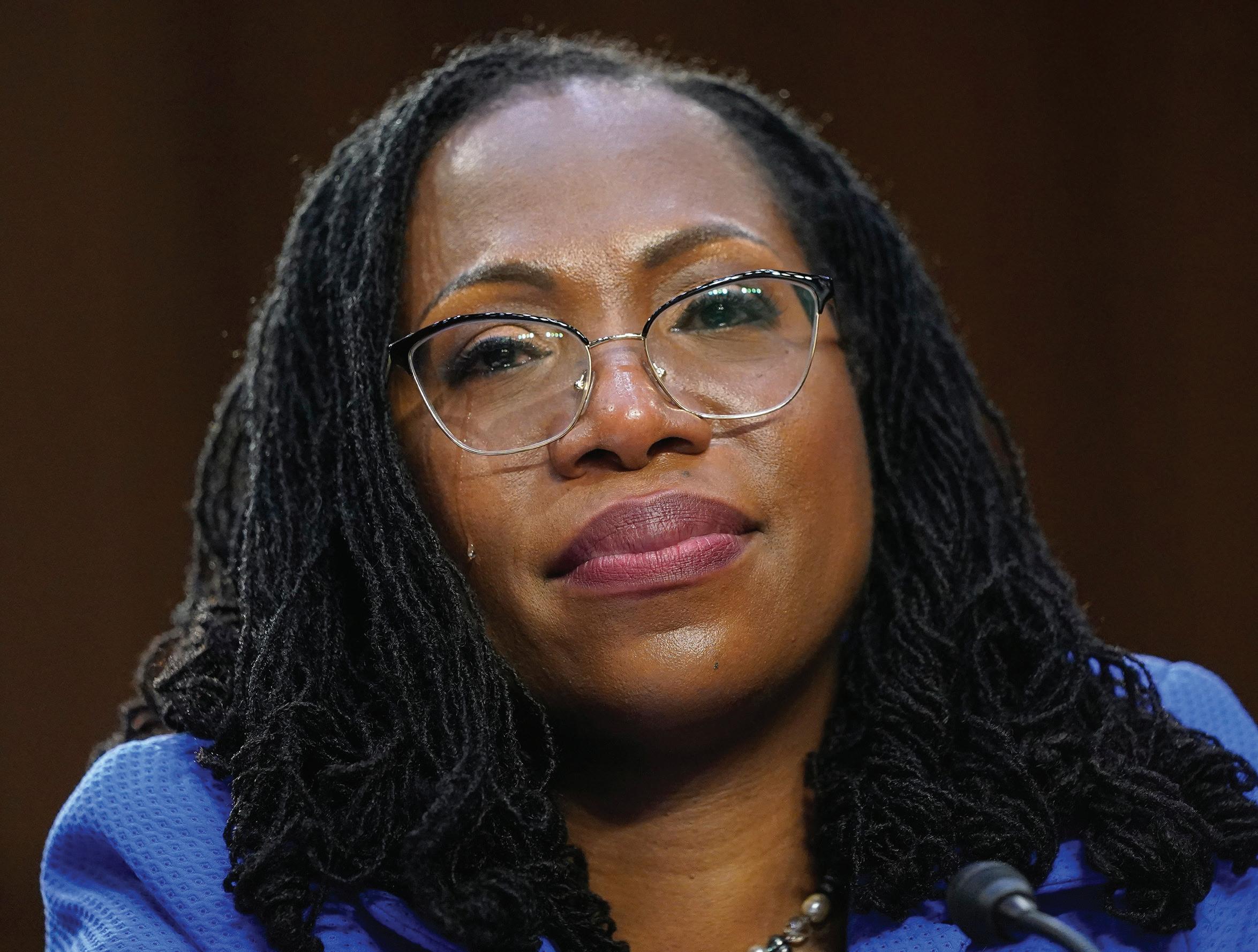
Tanya Washington Hicks is a professor of law at Georgia State University College of Law. She teaches Education Law, Family Law and Civil Procedure.
This article was originally published in The Atlanta JournalConstitution
FALL 2022 19
JEFFREY L. VAGLE
Dobbs decision also impacts privacy
UNTIL RECENTLY, conversations around privacy are likely about controlling or protecting the mountains of data we generate just by going about our everyday lives. This topic is often referred to as “informational privacy.”
The recent Supreme Court decision in Dobbs, however, has a direct bearing on a different aspect of privacy known as “decisional privacy.” This is broadly defined as an individual’s right to make certain fundamental decisions about their personal lives, such as whether and whom to marry, as well as reproductive choices, such as birth control and abortion.
What the Dobbs decision has done is remove a significant legal basis for decisional privacy. It illustrates that any legal distinction made between these two aspects of privacy has been practically nullified by the ubiquitous use of technologies that are constantly collecting data about us and how we choose to live our lives. Because U.S. law does a poor job protecting informational privacy, our
data can be used against us to enforce new decisional restrictions (in this case, reproductive rights).
If our ability to make fundamental choices about our lives is no longer truly private, we risk not only the potential criminal and civil liability upon changing legal landscapes; but more centrally, losing our dignity and rights as citizens and human beings.
The early instinct to distinguish “informational privacy” from “decisional privacy” can be found in some of the first Supreme Court cases to acknowledge the rights of individuals to make their own reproductive choices, including Griswold v. Connecticut (1965) and Roe v. Wade (1973).
This distinction made sense during the 1960s and 1970s, when the concept of computers, networks and databases was rather quaint when compared with our current reality.
Today, our data is invisibly collected in ways we no longer even consciously consider.

For example, our location history, including the detailed location data
constantly generated by our smartphones, presents a “comprehensive record of a person’s public movements that reflects a wealth of detail about her familial, political, professional, religious, and sexual associations.” The metadata collected
about our telephone conversations and text messages can be just as revealing by presenting who we communicate with, when, and how often. The applications and devices we choose not only collect information about their use, but may be gathering data in ways we may be unaware of and using it in ways we may not approve of. All of this information paints a very detailed picture of our lives and the personal choices we make.
When the Dobbs court overturned Roe, states became able to criminalize abortion, and the broad system of information collection enabled by the technologies we regularly use can potentially be mined
20 GEORGIA STATE LAW
Current
|
events
Dobbs Supreme Court decision
Whatever our understanding of privacy was a few decades ago, we must now face today’s reality of ubiquitous data collection.
to provide evidence in related police investigations. Some states may follow the example set by Texas, which effectively put a bounty on the heads of those seeking abortion care.
They may further attach civil penalties to anyone who may have aided that person, including family, friends and even the Lyft driver who dropped them off at the clinic.
And while the majority in Dobbs signaled otherwise, Justice Thomas, in his concurrence, explicitly called for the Court to reconsider all such decisional privacy cases going back to Griswold, which could endanger protections for birth control and same-sex sexual
relationships and marriage. No such challenges are currently before the court, but one can see how our own technologies could further betray us should those precedents also fall.
As the boundaries between informational and decisional privacy blur, external threats to our personal decisions also escalate. Anti-abortion groups have long made it a practice to publicly identify abortion providers, often explicitly calling for their physical harm. Now imagine what such a group could do with the data made available for purchase through multiple data brokers. In fact, we do not have to imagine.
And while much of the data available for purchase has been “anonymized,” it is not all that difficult to “de-anonymize” that data through basic analytic techniques.
Privacy law in the United States is a patchwork, at best, either protecting data within specific industry silos, such as certain financial or educational data, specific segments of the population, such as children, or storage and use of data by government agencies.
In the recent executive order on abortion rights, President Biden directed additional federal actions to protect sensitive data relating to reproductive health care in such laws as the Health Insurance Portability and Accountability Act (HIPAA). However, HIPAA only applies to a relatively narrow group. In far too many cases, the collection, storage, mining and sale of your personal data is just not covered by existing U.S. privacy law.
Whatever our understanding of privacy was a few decades ago, we must now face today’s reality of ubiquitous data collection.

It’s time to bring U.S. privacy law into the present day. Recent bills before Congress may, if passed, move us in the right direction, but comprehensive privacy law is what is truly needed.
Individuals’ dignity and civil rights are on the line.
Jeffrey L. Vagle is an assistant professor of law at Georgia State University. He teaches privacy law, cybersecurity law, and law and ethics of technology.
This article was originally published in The Atlanta JournalConstitution
FALL 2022 21
ANTHONY MICHAEL KREIS
Heed Georgia Constitution on abortion
LAST WEEK, the U.S. Supreme Court overruled the landmark decision Roe v. Wade, which guaranteed a core right for women to obtain an abortion since 1973. The decision in Dobbs v. Jackson Women’s Health Organization upheld a Mississippi law that bans abortions after 15 weeks of pregnancy.
While reversing Roe, the court adopted a new constitutional rule that is highly deferential to policies legislatures enact. Now, Georgia’s regulations of abortions,
like the 2019 LIFE Act, will become largely immune from federal court intervention. That 2019 law prohibits abortions once fetal heart tones are detected, except when a physician determines that a medical emergency to the mother exists. Pregnancies resulting from rape or incest can be terminated for up to 20 weeks, but only if a victim files a police report.

But while federal courts are generally closed to reproductive health litigation, constitutional questions remain under the Georgia Constitution that state judges must decide. The Georgia Constitution protects women’s reproductive health care choices and a basic right to abortion.
Unlike the federal constitution, the Georgia Constitution begins with the Rights of Persons. The first is a substantive right to life, liberty and property protected
by the due process of law. This language mirrors the United States Constitution’s Fourteenth Amendment, but the Georgia Constitution contains additional rights with more sweeping text than the U.S. Constitution. Indeed, our state constitution also safeguards equality, declaring that the laws of this state must protect people and property in an “impartial and complete” manner. And unlike the national constitution, which does not expressly require a duty to protect citizens, the Georgia Constitution instructs the General Assembly that it has a “duty” to enact laws that ensure the “full enjoyment of the rights, privileges, and immunities” of citizenship.
The textual commands of the state’s fundamental law and Georgia’s constitutional tradition are unambiguous:
22 GEORGIA STATE LAW
Current events | Dobbs Supreme Court decision
the government must treat citizens equally, not infringe on liberties unless for compelling reasons and affirmatively protect Georgians’ equal citizenship. Liberty, the complete protection of the law and the enjoyment of full citizenship cannot exist without personal autonomy.
shield a state prisoner’s refusal to eat or accept medical care. The Georgia Supreme Court ruled the state has no countervailing interest in forcing a patient to get medical treatment without which the patient will die. Georgia courts have fiercely defended the rights of parents to
that victims of crime and abuse expose themselves to the state is an affront to their dignity and repugnant to the fundamental right Georgians have to keep out of the public eye.
A robust right to privacy has been core to our state constitutional tradition for over 115 years. It was reflected in the fact that Georgia was among the first five states to liberalize reproductive health care laws in 1968, which permitted abortions where a patient’s health was endangered, the fetus “would very likely be born with a grave, permanent, and irremediable mental or physical defect,” or if the patient was a rape victim.
None of these constitutional values find refuge in a legal landscape that denies a person’s decisions about their body, health, family formation, and life including a right to reproductive choice grounded in the right to privacy.
Georgia courts pioneered the right to privacy. In 1905, the Georgia Supreme Court recognized a broad right to privacy in Pavesich v. New England Life Insurance Co. Ours was the first state high court in the United States to recognize a substantial privacy right. The Pavesich decision stands for the proposition that liberty means more than the right to be free from unjustified physical restraint. Liberty also includes the simple desire “to be let alone,” to be free to order our lives as we choose if we pose no harm to the public, and the “right to withdraw from the public gaze.” The Georgia Supreme Court has repeatedly reaffirmed expansive constitutional protections of Georgians’ privacy that exceed federal rights.
Since the 1980s, the Georgia Constitution has been interpreted to
choose who can take care of their children. The state constitution also allows parents to make painful medical decisions without the state’s intrusion, allowing them to end life support for children without prior judicial approval. The Georgia Supreme Court was a trailblazer in gay rights, striking down the state’s anti-sodomy law five years before the Supreme Court did in Lawrence v. Texas
There will be calls to further restrict reproductive health care in Georgia beyond the fetal personhood law adopted by the General Assembly three years ago. Any total abortion ban, limitations on emergency contraception, burdens placed on the right to travel, narrowing of exceptions, or other measures pursued by legislators elsewhere that constrain patients’ medical decisions offend the right to privacy. And while judges will be asked to rule on whether Georgia’s 6- and 20-week rules meet constitutional muster, the courts must overturn the law’s public reporting requirements for women who are victims of rape and incest. Mandating
The General Assembly recognized over 50 years ago (albeit in a limited way) that a complete ban on abortions unduly infringes on the need for space between the prosecutorial arm of the state and medical decision-making. This is the baseline understanding of privacy rights Georgians understood the state and federal constitutions to protect when the people ratified the state constitution in 1982. Georgians should not have fewer protections today than the law voters expected 40 years ago.
In that spirit, Georgia’s judges must continue to honor our constitutional tradition and act as a firewall against efforts to erode the right to privacy further.
Anthony Michael Kreis is a law professor at Georgia State University College of Law, specializing in constitutional law and legal history.
This article was originally published in The Atlanta JournalConstitution
FALL 2022 23
A robust right to privacy has been core to our state constitutional tradition for over 115 years.
STEPH IASIELLO (J.D. ’23)
Real-life lesson in wrongful conviction case
by Jaya Franklin
O, WHAT ARE WE GOING TO DO?”
Steph Iasiello (J.D. ’23) asked law students one day during Professor Russell Covey’s wrongful convictions course, after the group spent an entire class session reviewing documents and exhibits related to Melissa Lucio’s case.
Lucio is a Texas woman and mother of 14, who was scheduled for execution on April 27, 2022 for the death of her two-year-old daughter, Mariah.
Lucio, 53, is the only Hispanic woman currently on death row in Texas. Many people believe that Lucio is innocent and was wrongfully convicted of murdering her daughter in 2007. Iasiello decided to approach Professor Covey about studying Lucio’s case in their wrongful convictions class.
Covey agreed.
“…The record is pretty extensive, but we divided up the materials and read pretty much everything we could about the trial proceedings and the clemency application. Once my class understood what was going on in the case, that the evidence used to convict Melissa was not reliable, and that the tactics used by the detectives in the case precisely match the types of interrogation tactics that have been proven to lead to wrongful convictions, you could tell that their sense of indignation was triggered,” said Covey.
Lucio’s daughter suffered from injuries that ultimately resulted in her death two days later. Prosecutors believe that the injuries were caused by Lucio and that she was abusing the child. However, her clemency petition states that the injuries came from an accidental fall down the stairs.
advocacy
“Melissa’s case wasn’t a story in a textbook; there is a human life hanging in the balance. Objectively, there wasn’t a ton we could do, but for me doing nothing wasn’t an option,” explained Iasiello who approached their peers about writing a letter to Texas Governor Greg Abbott.
“…That seemed to be the best way to make our voices heard. I was the one who brought the case to Professor Covey, so I felt responsible. I don’t know if it will make a difference in the ultimate outcome, but it is important to me that my actions align with my values and for my own integrity. I could not remain silent,” said Iasiello who is a part of the Georgia State University Prison Education Project.
Iasiello’s ultimate goal is to start a “juris doctor in prison program.”
This goal doesn’t surprise Professor Covey because he believes that the second- and third-year law students in his class “are almost without exception, devoted to pursuing careers in the public interest, and more specifically they are focused on working in the criminal justice system.”
“It was energizing to be in a space where my peers cared deeply about creating a more just and equitable legal system. It gave me some hope for the future of the profession,” Iasiello shared.

Covey said Iasiello drafted the letter the class signed and did a wonderful job.
“[They are] clearly ready to be an impactful lawyer from day one,” he added, referring to Iasiello.
Covey is confident “…that this group of College of Law students will make a difference once they start their careers as attorneys…”
He first began teaching the wrongful convictions course in 2008 after researching the topic and realizing how important it is to understand the causes of wrongful convictions for lawyers.
“For criminal lawyers, there is little that is more important than identifying the ways in which the system can go catastrophically wrong and wind up convicting, and sometimes sentencing to death, innocent people,” said Covey.
Update: On April 25, 2022, two days before Melissa Lucio was scheduled to be executed, the Texas Court of Criminal Appeals stayed Lucio’s execution and sent her case back to trial for review. The court ordered the 138th Judicial District Court of Cameron County, Texas to consider new evidence in her case.
24 GEORGIA STATE LAW
Student stories | Action and
“It is important to me that my actions align with my values. I could not remain silent.”
GROWING UP, Tamia Robinson (J.D. ’24) didn’t find many people who looked like her in her small hometown in South Florida. Born with spina bifida, a condition that affects the spine, she is paralyzed on her left side and uses a wheelchair full time.
“There was not a large disability population, so often I felt very isolated. I felt like I was alone in my journey,” she said.
When she enrolled at the University of Florida, things began to change. She met other students who had similar experiences and challenges. Robinson got involved in the disability resource center at the university, which hosted panel discussions and events focused on disability advocacy. She helped campaign to make the university more inclusive, such as adding a pool lift to make the college pool accessible for all.
As Robinson began advocating more for herself and for others like her, she began to gain confidence.
“My confidence in my capability as a person with a disability grew,” Robinson said. “My love for advocacy also grew as I began to understand that I wasn’t alone.”
She decided she wanted to combine her affinity for advocacy work and law by pursuing a juris doctorate.
“Advocacy is a big part of being an attorney, and I believe that through doing disability advocacy and law at the same time I can reach more people,” she said.
However, as she looked around the legal landscape, she started to feel that same sense of being alone in her journey.
“At one point I was very discouraged because I didn’t see people who looked like me in the legal space that I’m trying to get to,” she said.
In a 2017 survey by the National Association of Law Placement, only 0.54 percent of attorneys reported a disability. The report also noted that between 1 and 2 percent of law school
(J.D. ’24)
Representation and visibility matters
graduates have a disability. (However, the report also states that it’s likely those numbers are vastly underreporting the true population of attorneys with disabilities).
“Having visibility and representation is important, especially among a smaller community,” Robinson said. That’s why she’s working to form a student organization for law students with disabilities at Georgia State University College of Law.
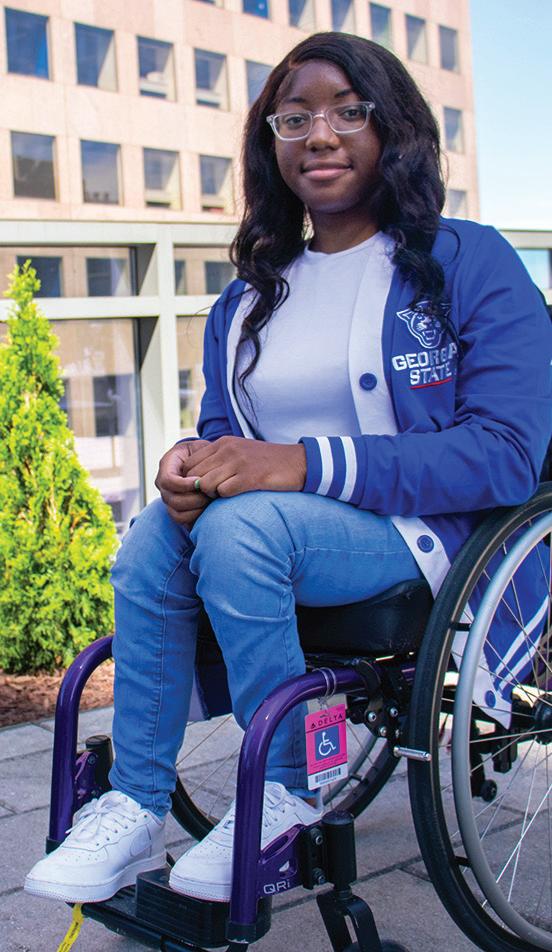
“Even though it is a very small population, I believe if we connect with each other and increase our network, we can increase our visibility in the community and on campus,” Robinson said.
“And I want law students with disabilities to be able to say, ‘this organization at school has people like me who have been through the same things as me, and we can achieve really great things in my life.’”
Robinson expects the organization to be formed in the fall semester of 2022. She envisions the group hosting panel discussions with lawyers speaking about their experiences with having disabilities, as well as creating a network with other law schools.
She hopes the organization will facilitate discussions and provide learning opportunities for students about how to interact with clients with disabilities—such as the importance of using people-first language.
“People first language is essentially saying ‘a person with a disability or ‘people with disabilities instead of ‘disabled person’ or ‘handicapped person,’” Robinson said. “The purpose is making sure you are taking into account the person first and not their disability because a lot of times people see the disability first and not necessarily you. People first language combats that internal ableism, and it helps a person with a disability to feel seen and heard.”
Meg Butler, associate director for public services in the Law Library, said Robinson’s leadership in creating this organization will benefit all Georgia State Law students.
“I am so impressed with Tamia’s energy and enthusiasm for starting a student organization that would support and promote our law students with disabilities,” said Butler. “Through the group and its programming, students will be able to improve their awareness of all types of disabilities, visible and invisible, as well as their advocacy skills to champion universal design, for example.”
FALL 2022 25
TAMIA ROBINSON
“My love for advocacy grew as I began to understand that I wasn’t alone.”
by Stacey Evans (B.A. ’02)
Faculty news
SERVICE TO THE PROFESSION
Pam Brannon, coordinator of faculty services, was appointed to the American Association of Law Libraries’ Economic Status of Law Librarians Committee.
Rose Rameau, visiting assistant professor, was appointed to the Board of Advisors for the Jamaica International Arbitration Center, selected as a member of the Advisory Council of ArbitralWomen, and selected as an American Bar Association representative and observer to the United Nations Economic and Social Council.
Jonathan Todres, Distinguished University Professor and professor of law was appointed to the National Academies of Sciences, Engineering and Medicine’s workshop committee on Exploring the Power of Youth Leadership in Creating Conditions for Health and Equity.
PRESENTATIONS
Julian Hill, assistant professor of law, presented “Barriers and Opportunities for Black-led Worker Cooperatives,” at the global meeting of the Law & Society Association hosted in Lisbon, Portugal.
Ryan Rowberry, professor of law and co-director for the Center for the Comparative Study of Metropolitan Growth, presented the paper, “The Papal Constitution Execrabilis (1317) and its Effect on Three Clerical Common Law Justices,” at the 25th British Legal History Conference in Belfast, Northern Ireland.
Allison Whelan, assistant professor of law, presented “Aggravating Inequalities: State Regulation of Abortion and Contraception” at the global meeting of the Law & Society Association in Lisbon, Portugal.
PUBLICATIONS/ PROJECTS
Lynn Hogue, professor of law Emeritus, published “Military Law in a Nutshell,” (5th edition, West Academic, 2022)
Harold Weston, clinical associate professor, co-authored “The Conflict and Burden of Insurer Appointments for Brokers and the Need for Regulatory Reform,” Journal of Insurance Regulation, vol 41: 1-17.
Leslie Wolf, Distinguished University Professor and professor of law produced a video series called “Bioethics: Inclusive Voices.” The short, high quality videos feature diverse scholars from multiple disciplines and are designed for classroom use at a variety of levels.
MEDIA COMMENTARY
Ted Afield, associate dean for Experiential Learning and director of Clinical Programs, was cited in Law 360 about the potential benefits of the proposed IRS free e-file system that Congress asked the IRS to report as part of the Inflation Reduction Act.
Courtney Anderson, associate professor of law, spoke with CBS46 about “source of income discrimination,” a common issue faced by some low-income families.
Megan Boyd, senior lecturer, was interviewed by Jurist about children’s literature, the legality of book bans, and ways to challenge them.
Yaniv Heled, professor of law and co-director of the Center for Intellectual Property, was quoted in an article for Bloomberg Law called “Drug Price Bill Shifts Dollars from Cancer Meds, Analysts Warn.”
Lester expands reach in new role
Tameka Lester was promoted to associate dean for Student Success & Strategic Enrollment Management at the College of Law in April 2022.

As a dedicated member of the faculty, Lester continues to reinforce her reputation for supporting students and promoting a positive environment within the law school.
Prior to her new position, Lester was the interim Associate Dean for Student Affairs from August 2021 to May 2022. Her work with the College of Law began in July 2015 when she relocated to Atlanta from North Carolina and became the associate director of the College of Law’s Philip C. Cook Low-Income Taxpayer Clinic and an associate clinical professor.
She enjoyed her time as an associate professor, but now her responsibilities require a wider reach, and Lester is
focused on improving the global student experience for everyone.
In her new position, Lester will continue to help others resolve administrative issues, but her focus has shifted to solely law students. “In this role, I have expanded the number of students I advise from 20+ students each semester to supporting the entire student body.”
Lester guides student organizations, helps students with accommodations, and advises students on how to navigate academic, professional and personal issues. She also oversees academic advisement for the College of Law, and bar success and serves as the Enrollment & Admissions Office supervisor. Her “hope is to improve the overall student experience at every station,” by “ensuring [students] have the resources they need through academic and career support, and making sure they have the strategies, knowledge and confidence to successfully pass the bar exam.”
This past summer Dean Lester led the College of Law’s #CrushtheBar campaign aimed at providing resources
to law students preparing to take the bar exam. The campaign encourages test takers and spreads awareness about study sessions and other resources available for bar preparation at the law school. The campaign also included a six-week intensive bar writing course.
Partnering with the Center for Professional Development & Career Strategies (CPD), is also part of Dean Lester’s new responsibilities. Amy McCarthy, director of the CPD, expressed her excitement to continue collaborating with the associate dean.
“I am thrilled to be working with Dean Lester. She brings a fresh perspective to the role, having worked directly with students in the clinic setting for the last several years. I am confident that under her leadership, the CPD can continue providing excellent services and resources to COL students who are seeking internships or post-graduate positions. She has been very supportive of my team’s efforts since she took on this new role.”
—Alaina Vacante (J.D. ’24)
26 GEORGIA STATE LAW
Legal scholar garners worldwide media hits
Clark Cunningham, professor of law and the inaugural holder of the W. Lee Burge Chair in Law & Ethics, has been regularly consulted by local, national and international media outlets in the past year for his expertise on the law relating to search warrants and the criminal investigations of interference in the 2020 presidential election.

News media outlets quoting and interviewing Cunningham have included the Atlanta Journal-Constitution; The New York Times, The Washington Post; MSNBC; USA Today; Reuters; CNN; Newsweek; Yahoo News; BBC World News; Sky TV (London); the Canadian Broadcasting Corporation; and the German public television network, DW TV News
In August 2022 the world’s leading on-line publisher of research-based news and analysis, The Conversation, posted five articles by Cunningham analyzing legal issues raised by the search of former President Trump’s residence at Mar-a-
Lago. According to The Conversation’s website, these articles were read by over 268,000 persons around the world.
Cunningham said while some of these readers were direct subscribers to The Conversation, the articles were also republished by many media outlets.
“For example, over 40,000 people read an article I wrote for The Conversation on August 9 when it was republished that same day on the website of PBS Newshour,” he explained.
In the most widely read of his five Conversation articles on the Mar-a- Lago search, posted on August 26, 2022, he explained how the affidavit used to obtain the search warrant contained evidence that the former president may have compromised national security.
“The affidavit reveals that some of the documents stored at Mar-a-Lago were marked HCS, indicating they were intelligence derived from clandestine human sources—or what we would think of as secret intelligence information provided by undercover agents or sources within foreign governments,” he wrote. “If the identity of agents or sources is revealed, their intelligence value is compromised and, even, their lives may be at risk.”
“One of the benefits of publishing with The Conversation is working with editors who are professional journalists,” said Cunningham, “The editing process is the most intensive I’ve experienced. Not only must every factual statement be supported by a reliable public source, linked by URL in the text of the story, but the editors are constantly pressing you to be ever more concise and clear.”
Following the high-profile investigations of interference in the 2020 presidential election, along with the flurry of consistent media requests, have kept the legal scholar busy. But Cunningham doesn’t seem to mind and has experienced some noteworthy moments along the way.
“The most exciting, and stressful, moment was being interviewed on live national TV by Chuck Todd for Meet the Press on January 21, 2022,” he recalls.
“My favorite experience was being interviewed for the Bloomberg radio network by June Grasso, because the interview lasted about 30 minutes which gave a real opportunity to dig into and explain all the issues raised by the investigations into former President Trump’s interference with the 2020 election.”
Tanya Washington Hicks, professor of law, was quoted in the Atlanta Magazine article titled “Georgia’s fetal personhood statute is uncharted territory.”
Anthony Kreis, professor of law, served as a panelist for GPB’s Political Rewind podcast. The segment was titled “The right to be ‘let alone’: Could Georgia’s privacy law be used vs. abortion ban?”
Timothy Lytton, associate dean for research and faculty development, Distinguished University Professor and professor of law, was quoted in several news articles about gun rights and gun violence including NPR, Reuters, AP, Christian Science Monitor and the Daily Beast. He was also a guest on the Spanish-language radio program Dia a Dia.
Caren Morrison, associate professor of law, shared her expertise with the Augusta Chronicle for an article titled “Georgia Bar requests review of complaint against former Augusta DA, cites professional misconduct.”
Eric Segall, Ashe Family Chair Professor of Law, participated in an interview with Bloomberg Law about who could potentially challenge President Biden’s student loan forgiveness package.
Lauren Sudeall, professor of law, provided commentary for a four-part series examining legal deserts in the state of Georgia for the Daily Report
Anne Tucker, professor of law, was quoted in the National Law Review about Constitutional challenges to the Securities and Exchange Commission’s no-deny provisions in enforcement proceeding settlements.
AWARDS AND ACCOLADES
Karen Johnston (J.D. ’08) is now a senior academic professional and deputy director of the Center for the Comparative Study of Metropolitan Growth.
Paul Lombardo was reappointed as Regents’ Professor permanently.
Stacie Kershner (J.D. ’08) was promoted to senior academic professional and deputy director for the Center for Law, Health & Society.
Leila Lawlor, director of academic success and LL.M. programs, received the Faculty Award for Global Engagement – Teaching, Service and Outreach from the Georgia State University Office of International Initiatives.
Darcy Meals became a senior academic professional, deputy director of the Center for Access to Justice, and director of Public Interest Programs for the College of Law.
FALL 2022 27
Alumni profile | Attorney of the Year
LINDA DUNIKOSKI (J.D. ’93)
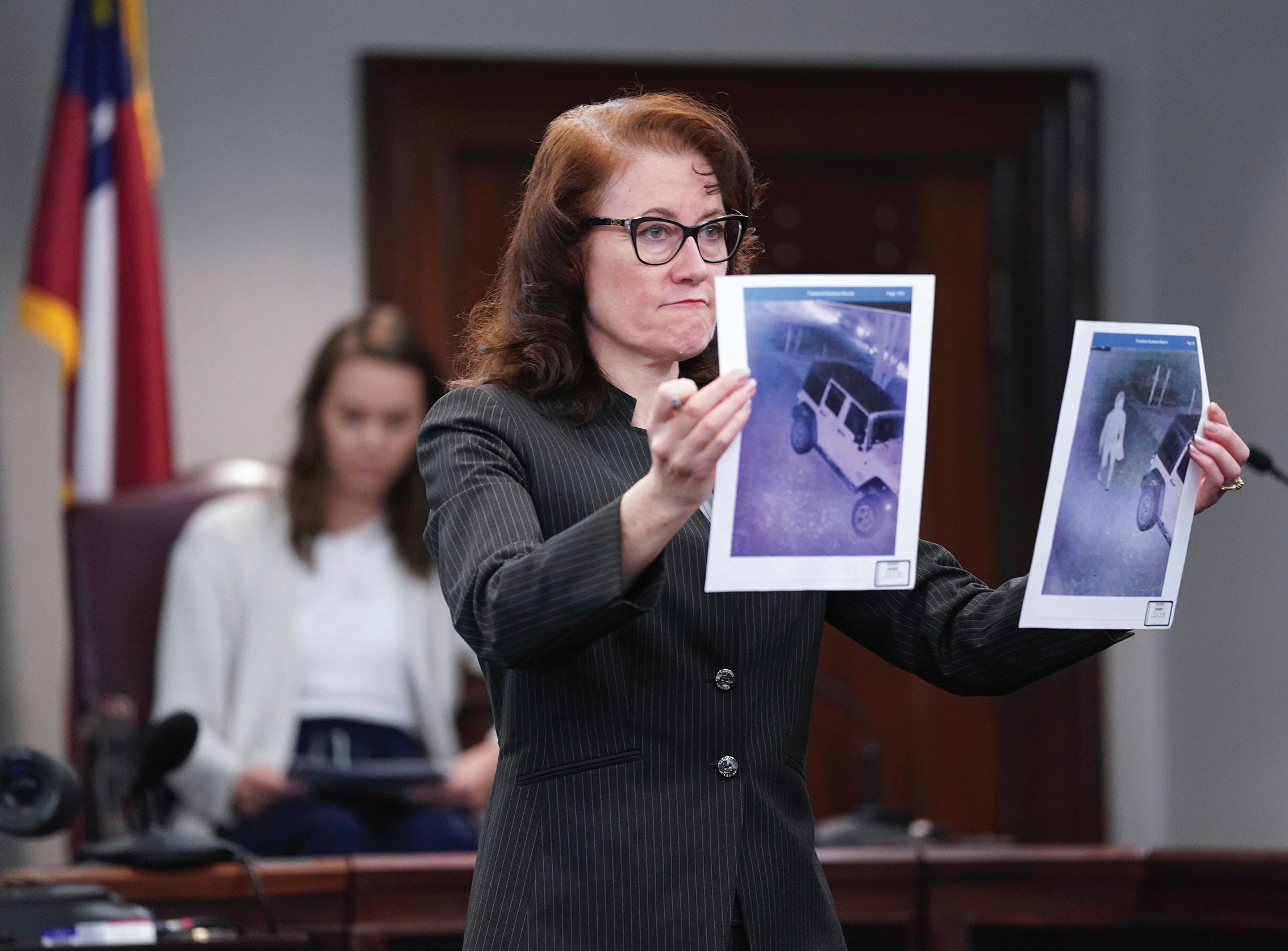
The making of a trial maven
by Joy Woodson
28 GEORGIA STATE LAW
LINDA DUNIKOSKI (J.D. ’93) didn’t dream of becoming an attorney.
Growing up, her parents attempted to expose her to as many activities as possible. Their dream was to provide her with a debt-free college education, but there was not much career direction.
Dunikoski was an avid reader, finding herself drawn to philosophy, history, and politics, so she majored in political science at Indiana University in Bloomington, Indiana. She graduated from college in 1989, with her first job as a secretary in the trade show exhibit industry.
Law school didn’t occur to her until her then-husband mentioned it.
“I don’t blame my parents; they just didn’t know,” she said.
“I didn’t come from rich people. I came from a coupon-clipping-you-buyeverything-on-sale family. The middle class, struggling, ’70s family, who wanted to do better for their kids.”
“And my parents did, but then it was up to me.”
Eventually, she enrolled in the College of Law’s part-time evening program. Back then, there was no requirement that she attend all classes, only that she complete assignments.
“I needed to work to put a roof over my head and food on my table, and I needed to support myself,” said Dunikoski, who continued working full time in the trade show industry.
It pushed her to be responsible for herself, and it fed attributes she’d later
draw on: tenacity, persistence, and a gritty work ethic.
If the College of Law had only offered a traditional program, Dunikoski knows she would not have gone to law school. Often law schools expect students to solely focus on school, soldiering through with no income, taking on tremendous debt.
“But what you’re really doing is you’re creating an elite class of rich people who can afford to [become lawyers],” she said. “That’s not what we need, and that’s not what America is about.”
She only worked as an attorney for two years before going back to sales. Nearly a decade later, she was asking the Fulton County District Attorney Paul Howard to hire her.
“Paul Howard wasn’t really interested in somebody who hadn’t practiced law in 8 years,” she said. “I was really persistent; I never gave up. I basically kept demanding that he interview me and give me a job.”
He did. Her first trial, however, was “a flaming disaster.” The second trial wasn’t much better. Her years in sales showed, and not always in a good way.
“Jurors don’t want you to be a salesperson; jurors want to trust you,” she said.
She found her stride, though, and three years later, she was assigned to the Crimes Against Women and Children Division, and a year later she was in Major Cases, trying homicides.
After nearly two decades at Fulton County, Dunikoski was burned out. In 2019, she left Fulton to lead the Cobb County District Attorney’s appeals
division. Then, in May 2020, the infamous video of Ahmaud Arbery’s killing surfaced.
She was initially assigned to the team, and she wound up the lead prosecuting attorney a year later.
Dunikoski, who is white, knew racial justice also was on trial. Three white defendants were charged in the death of Arbery, a black man. There was a nearly all-white jury. Many wondered if the trial would be—or could be—fair.
She didn’t want to alienate the jury by telling them “they’re a bunch of racists, or someone they love is a racist,” Dunikoski explained.
“As a team, the prosecutors did not want to cause the jurors to get defensive and shut down,” she added.
Dunikoski largely avoided the race topic at trial. This, she believes, allowed the jurors to focus on facts.. In November 2021, they returned guilty verdicts.
Was that her greatest accomplishment?
“Actually, it kind of feels like my entire career and every experience I’ve had led up to that very moment,” she said.
Ultimately, her belief in the United States, the Constitution and justice keeps her inspired. Dunikoski, who was recently named “Attorney of the Year,” at the Georgia Legal Awards gala, hopes more young people will join the legal field, especially prosecution.
“I really want the next generation to come behind my generation and continue [our work in prosecution] because we can only do this by leading by example,” she said. “If you can lead by example, you will help ensure public safety.”
FALL 2022 29
“Jurors don’t want you to be a salesperson; jurors want to trust you.”
” “
The Student Trial Lawyers Association changed everything for me.
Do you think the methods of teaching at Georgia State University College of Law differ from the methods implemented at law schools with longer histories?
Georgia State University College of Law provided me with a very unique experience. I was able to learn from those I aspire to be, given that some faculty members are practicing lawyers and former judges. The Student Trial Lawyers Association (STLA) program is taught by some of Georgia’s top litigators and is the best mock trial program, bar none. When I appeared at my first trial as a lawyer, I remember the Judge praising my advocacy skills and confidence. I told him that that was in fact my first trial but that if he counted my mock trials, then I was a veteran.
What do you hope to see the College of Law achieve in the years to come?
I hope to see Georgia State College of Law continue to help shape the best lawyers and judges in the United States. I also hope to see it get the recognition that it deserves worldwide.
Judge, attorney, and
by Alaina Vacante (J.D. ’24)
What do you see as the future of the legal profession?
I see the future of the legal profession as being fully and easily accessible to the public. Our community should not be misinformed when lawyers and other professionals are able to share general information quickly via online platforms and community events.
How should Georgia State Law be proactive to ensure students continue to succeed as time goes on?
The College of Law should continue to reach out to alumni and invite them back to speak to current students. The College of Law should also offer online
or in person sessions geared towards continuing legal education for its alumni. Perhaps an annual session on social media marketing or ethical issues for young practicing attorneys. I think both of these sessions would be helpful.
In what ways did your time at the College of Law influence your career goals? How did the College of Law encourage you to achieve these goals?
English is my second language, and I was not very confident in my advocacy skills. I honestly never thought I had what it takes to be a litigator and vigorously argue cases in a courtroom. Because of Georgia State College of Law’s STLA program and our wonderful coaches, I learned how to over prepare for cases. I became fearless and confident. The Student Trial Lawyers Association (STLA) changed everything for me.
What does Georgia State Law mean to you?
Both GSU and the College of Law have a very special place in my heart. I am forever grateful for Dean Steven J. Kaminshine and Cheryl Jester-George for taking a chance on me. I am also grateful for the mock trial coaches, professors, connections, and the lessons I learned while a student at the College of Law. Go Panthers!
Pamela Peynado (J.D. ’14) is an attorney and partner at Lee & Peynado Immigration Law Group. At age 29, Peynado became the youngest and only female partner in the history of the firm. She also serves as Judge Pro Hac Vice for the Municipal Court of Atlanta.

30 GEORGIA STATE LAW
PAMELA PEYNADO (J.D. ’14)
CEO
In their words | The College
turns 40
of Law
Class actions
1992
1998
2015
2019
Linley
1994
1997
Chris
Share your news: law.gsu.edu/ class-actions.
Atlanta Attorney Alycen Moss, co-chair of Cozen O’Connor’s Property Insurance Group, was appointed to co-vice chair of the firm’s Global Insurance Department.





2004
Anamaria
Up & Comers Award.
2016
Luke
Thomas J. Mihill has joined Stites & Harbison, PLLC as a member in the Intellectual Property & Technology Service Group.

2013
Kristi Ramsay joined CNN as counsel, where she advises on newsgathering issues and provides pre-publication review.



Jesika Wehunt French joined the United States’ Attorney’s Office in the Northern District of Georgia as an assistant United States attorney in the Criminal Division.
IN MEMORIAM
Jarvarus Gresham was recently selected by the American Bar Association to participate in its Litigation Section’s Young Lawyers Leadership Program. The College of Law community mourns the loss of Alex Patafio (J.D. ’23) Alex was killed in a tragic automobile accident on Thursday, October 6, 2022. Our deepest condolences go out to Alex’s family, friends, and colleagues. She was pursuing a Public Interest Law & Policy Certificate at the College of Law. Alex also worked as a law clerk at The Arora Law Firm and aspired to be a criminal defense attorney. She was a bright light who left us too soon and will be missed by many.
Nick Lambros (J.D. ’24) passed away on Wednesday, November 9, 2022. Nick comes from a family of attorneys, and he aspired to join his family’s law practice. He had an “infectious smile and personality,” and he will be missed. We send our deepest condolences to Nick’s colleagues, friends and family including his mother Susan Lambros (J.D. ’92)

FALL 2022 31
Jones was elected Mayor Pro Tem for the City of Brookhaven by the Brookhaven City Council.
Keisha Lance Bottoms, former Atlanta mayor, will serve as Senior Advisor for Public Engagement to President Joseph R. Biden.
Tomlinson started a new position as managing director with Deloitte Consulting LLP.
Hazard, a managing associate at Dentons, received the American Bar Association’s
Donohue joined Equifax as assistant general counsel, employment.
Last look | 40th anniversary kickoff celebration






32 GEORGIA STATE LAW
Georgia State Law alumni from the classes of 1983, 1984 and 1985 gathered for a luncheon to celebrate the College of Law’s 40th anniversary.
Professor Corneill Stephens takes Georgia State Law alumni back to law school in his contracts class.
Roger Martin (J.D. ’85), right, and his classmate John Austin (J.D. ’85).
Bragging rights
40TH ANNIVERSARY
State Representatives
Beth Moore (J.D. ’11), right, and Sam Park (J.D. ’13), left, presented College of Law Dean LaVonda Reed, center, with a resolution from the Georgia House of Representatives to commend Georgia State University College of Law on its 40th Anniversary.
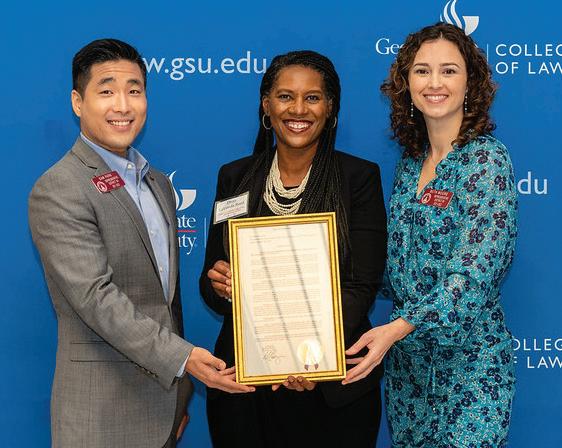
TRAILBLAZER
Mo Ivory, professor of practice and director of the Georgia State Law Entertainment, Sports & Media Law Initiative, is the 2022 recipient of the “Legal Trailblazer Award,” presented by the Black Entertainment & Sports Lawyers Association.

RANKINGS
No. 3
Best Building Spring 2022 PreLaw magazine
No. 3
in Health Care Law 2023 U.S. News & World Report
No. 13
in Part-time Law 2023 U.S. News & World Report
No. 1
Overall Master of Laws LL.M. Program 2022 Daily Report

ACCOLADES
Meri Elkin (J.D. ’23), wrote a paper about distressed hotel conversions to affordable housing. The American Planning Association’s Planning and Law Division awarded Elkin’s paper an honorable mention in the Smith-Babcock writing competition.
Anamaria Hazard (J.D. ’15), received the Up & Comers Award from the American Bar Association.
Dawn Jones (J.D. ’00) is the recipient of the College of Law’s 2022 Ben F. Johnson Jr. Public Service Award.
Leila Lawlor (J.D. ’95), director of academic success and LL.M. programs, received the Faculty Award for Global Engagement –Teaching, Service & Outreach from the Georgia State University Office of International Initiatives.
Kristi Ramsay (J.D. ’16) joined CNN as counsel, where she advises on news gathering issues and provides pre-publication review.
Percentage of Georgia State University College of Law J.D. graduates who pass the bar exam within two years of graduation.
Ted Afield, associate dean for Experiential Learning and director of Clinical Programs, was listed as one of the top U.S. tax professors with a Google Scholar page.
FALL 2022 C
97.85%
Association, class of 2019 statistics
American Bar
P.O. Box 4037 Atlanta, GA 30302-4037
Winter Commencement Friday, December 16, 2022 10 a.m. College of Law Ceremonial Courtroom

Miller Lecture Thursday, March 30, 2023 5:30 – 7 p.m. College of Law Knowles Conference Center
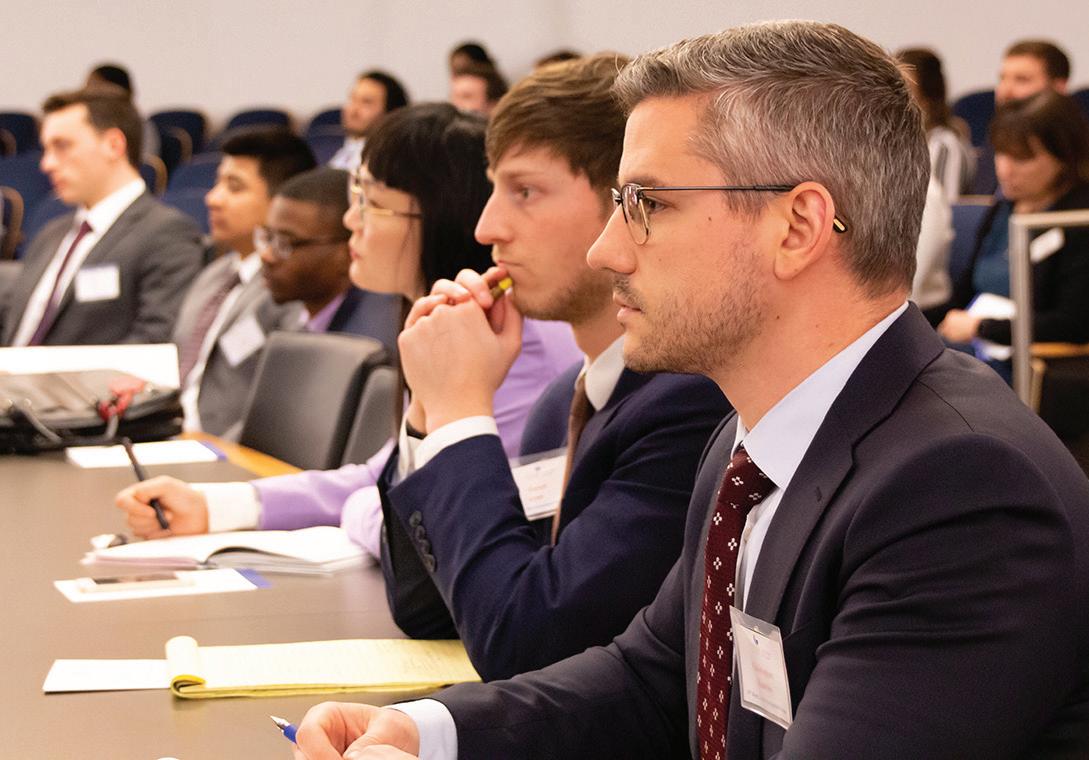
















































































































































































 LaVonda N. Reed Dean and Professor of Law
LaVonda N. Reed Dean and Professor of Law


























 by Stacey Evans (B.A. ’02)
by Stacey Evans (B.A. ’02)




































































